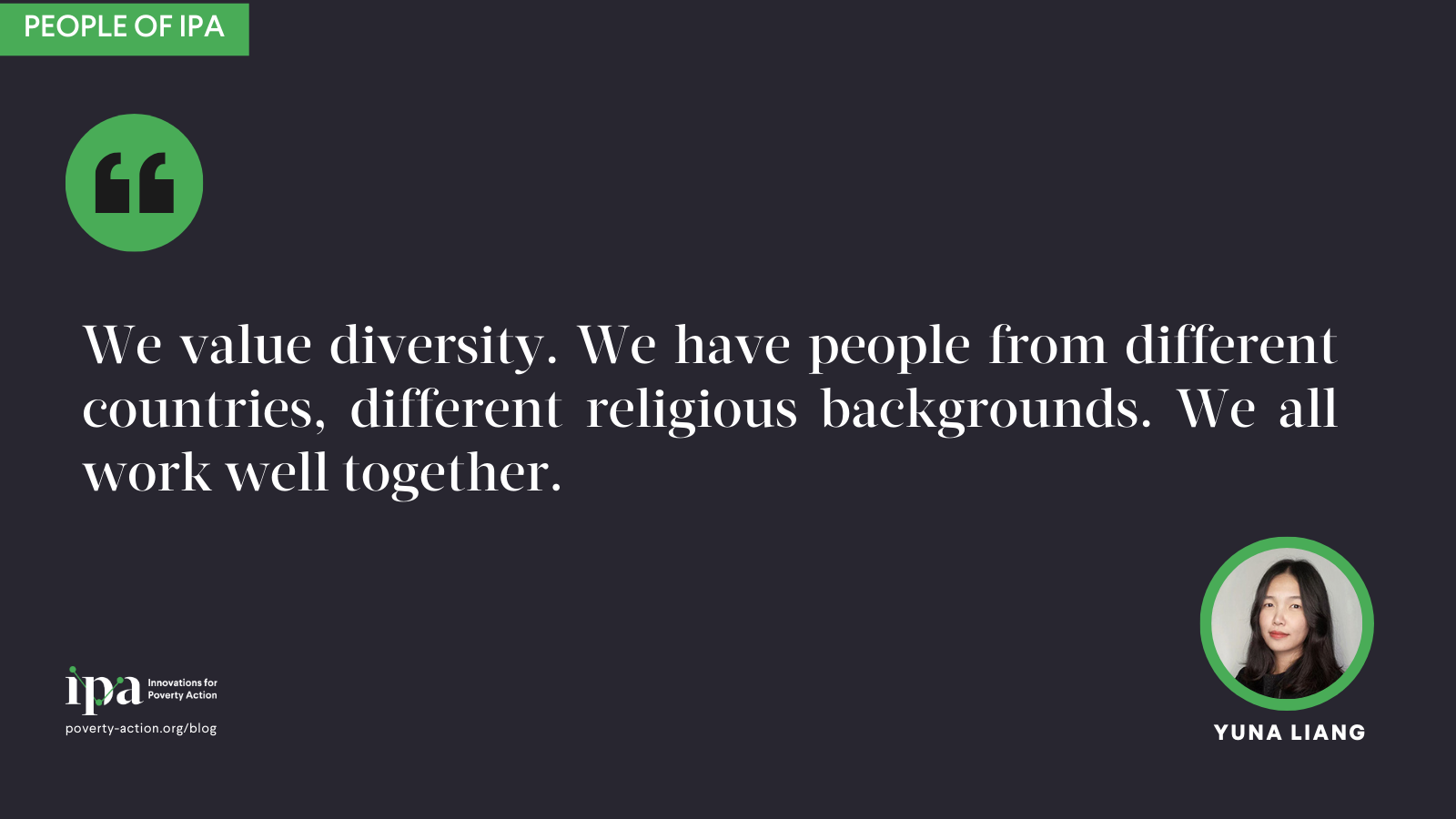Yuna Liang: We All Work Well Together
To mark its 20th anniversary, Innovations for Poverty Action (IPA) created People of IPA, a series of profiles celebrating IPA’s diverse staff, highlighting their contributions, and discussing how and why they seek to improve the lives of those living in poverty. Yuna Liang is a Senior Research Manager at IPA Philippines.
IPA is known for its rigorous approach to gathering evidence, but even the best data does nothing unless people unlock its power. In the right hands, it can become a starting point for policies that change lives.
Yuna Liang helps to make that transformation possible.
“In the Philippines, I think IPA’s strength is our relationship with our government partners,” she says. Now in her seventh year with the organization, Yuna and her colleagues have worked with entities including the Department of Social Welfare and Development and the Central Bank of the Philippines – forging connections based on trust and mutual understanding.
“At the beginning, we had to put in a lot of work to build the appetite of these partners to use research and data to inform policy. But, over time, they slowly saw the value,” she recalls. “IPA has become the go-to partner for these government agencies when they need advice, when they need evidence, when they want someone to build their capacity, or when they want to work on an evaluation.”
“Sometimes they come to us instead of us going to them,” she says. “And that’s really when I see our work being valued.”
Yuna has been promoted several times since joining IPA.
“Every promotion that I got was initiated by my manager,” she notes. “Management are the ones who saw my potential to take on more responsibilities and said, ‘We believe that you can do it.’ They gave me the opportunity to take on new work that I haven’t done before, and they trusted me to do it or learn it well.”

Project development is one of Yuna’s focus areas. She describes it as helping potential partners to see the value of impact evaluation and the importance of using data to inform program design or policymaking.
In other words, the work calls for talking and listening.
“No matter how much donors or researchers like us,” she says, “we can never make real impact if the programs and partners we work with don’t actually use the evidence they generate or the research products we produce.”
Yuna believes that she’s doing important work, and she appreciates her colleagues who share their knowledge and are always willing to help.
“People are always eager and open to learn from each other,” she says. “Like, when we think that others can do certain things better than ourselves, we don’t hesitate to ask. And I think that way we help each other grow.”
She also likes IPA’s culture of open communication.
“Everyone’s opinion is valued,” she says. “So it’s not like we have to just follow management. We are free to voice different opinions or to make suggestions.”
Yuna believes IPA’s progressive culture embraces differences.
“We value diversity. We have people from different countries, different religious backgrounds. We all work well together.”
Many IPA jobs involve at least some travel -- to see the context for a new program, for instance, or to track the impact of a policy that the organization’s research supports. Those opportunities are among Yuna’s favorite things about her role.
“When we travel for work, that’s usually when we go to communities to survey people participating in the programs we are evaluating,” she says. “Sometimes we go to super-remote and isolated places, and get to know the lives of people in that situation.”
“When I am able to feel connected with the communities we work in,” she says, “that’s when I truly feel that we’re doing impactful work.”











